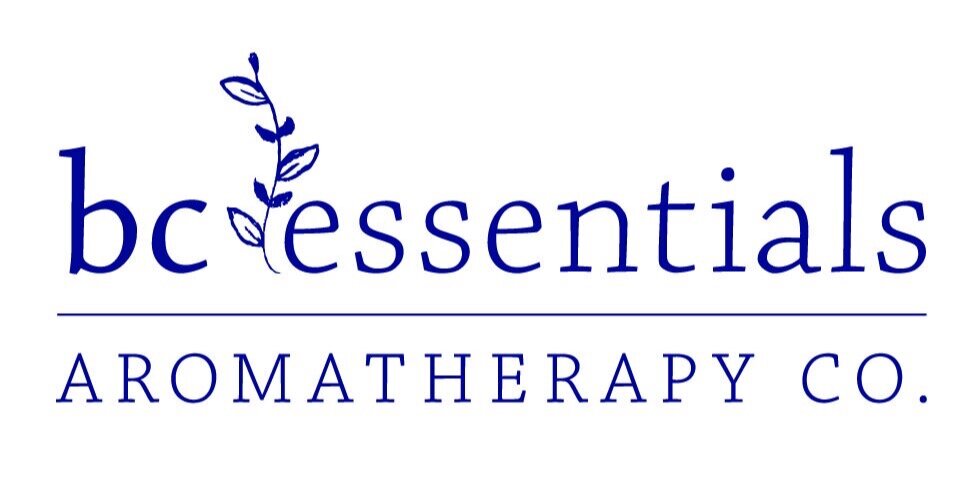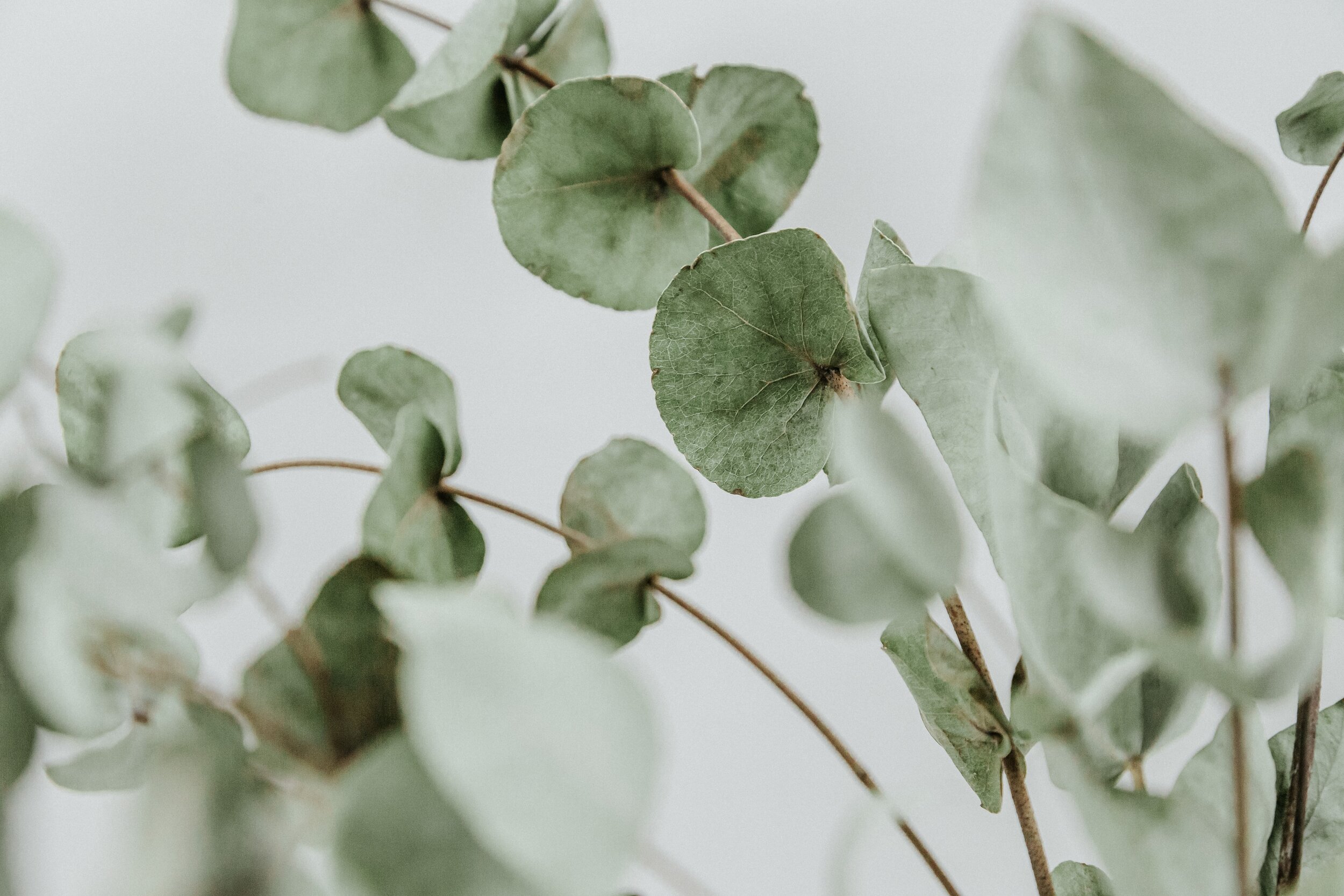
About Aromatherapy and Essential Oils
Aromatherapy is the use of essentials oils, which are highly concentrated plant extracts. There are over 3,000 different essential oils with about 300 commonly used today.
Essential oils enter the body through skin absorption and inhalation. They are made up of tiny molecules, that when inhaled enter the olfactory area of the brain in the limbic system. This can stimulate memory, effect emotions, heart rate, and hormones.
Essential oil molecules also enter through the skin, carrying away harmful toxins, free-radicals, cell debris, fungi, bacteria, and viruses in the body. It takes anywhere from 20 minutes to seven hours for skin to fully absorb essential oils, and anywhere from three to twenty hours to eliminate them. We eliminate them through our sweat, urine, and saliva.
Essential oils balance hormones, blood pressure, and many other systems in the body. They are great for muscle aches, burns, sinus problems, coughs and colds, migraines and many other uses. They have antibacterial, antifungal, analgesic, antiseptic, diuretic, and anti-inflammatory properties. When used properly they can be very effective in the treatment of many conditions.
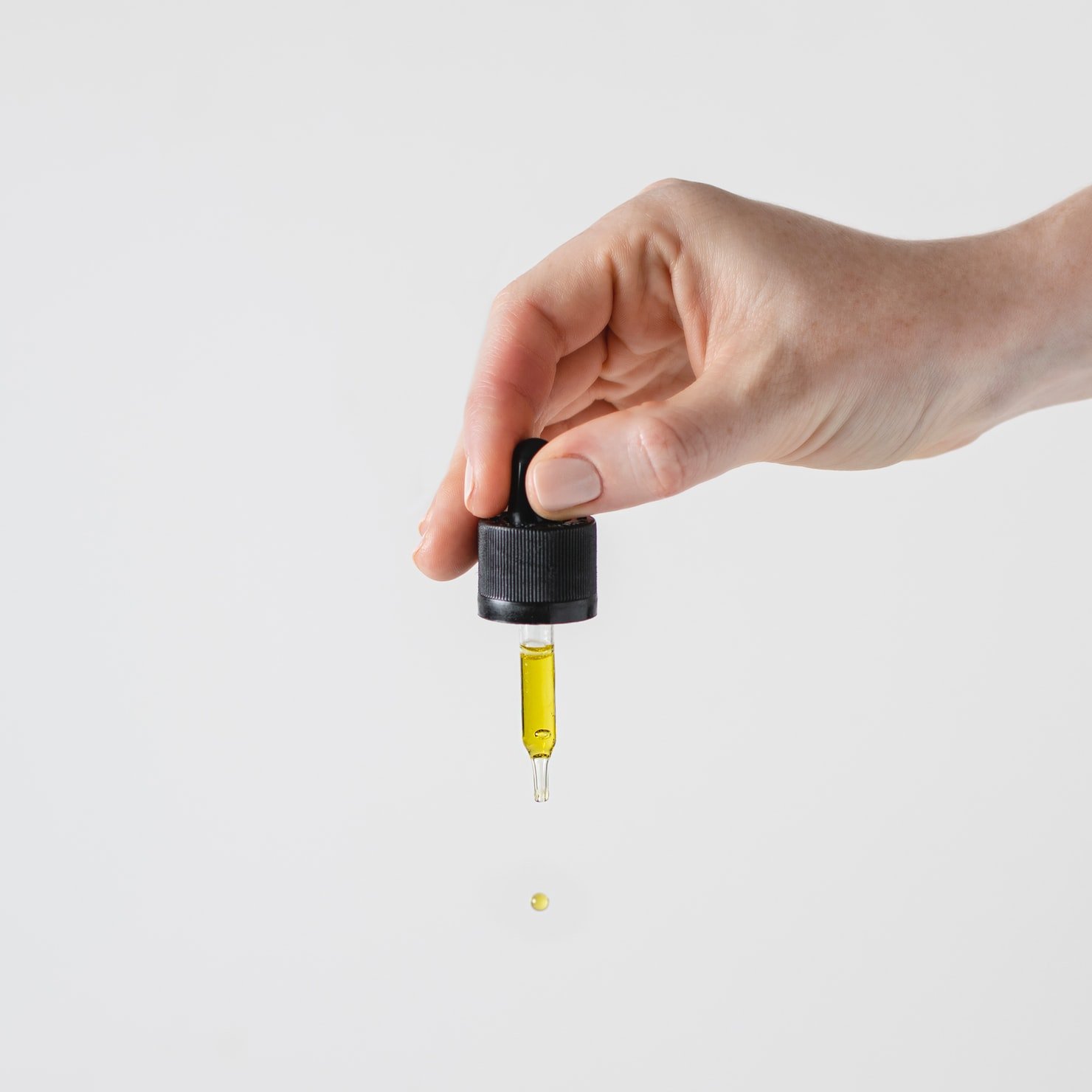
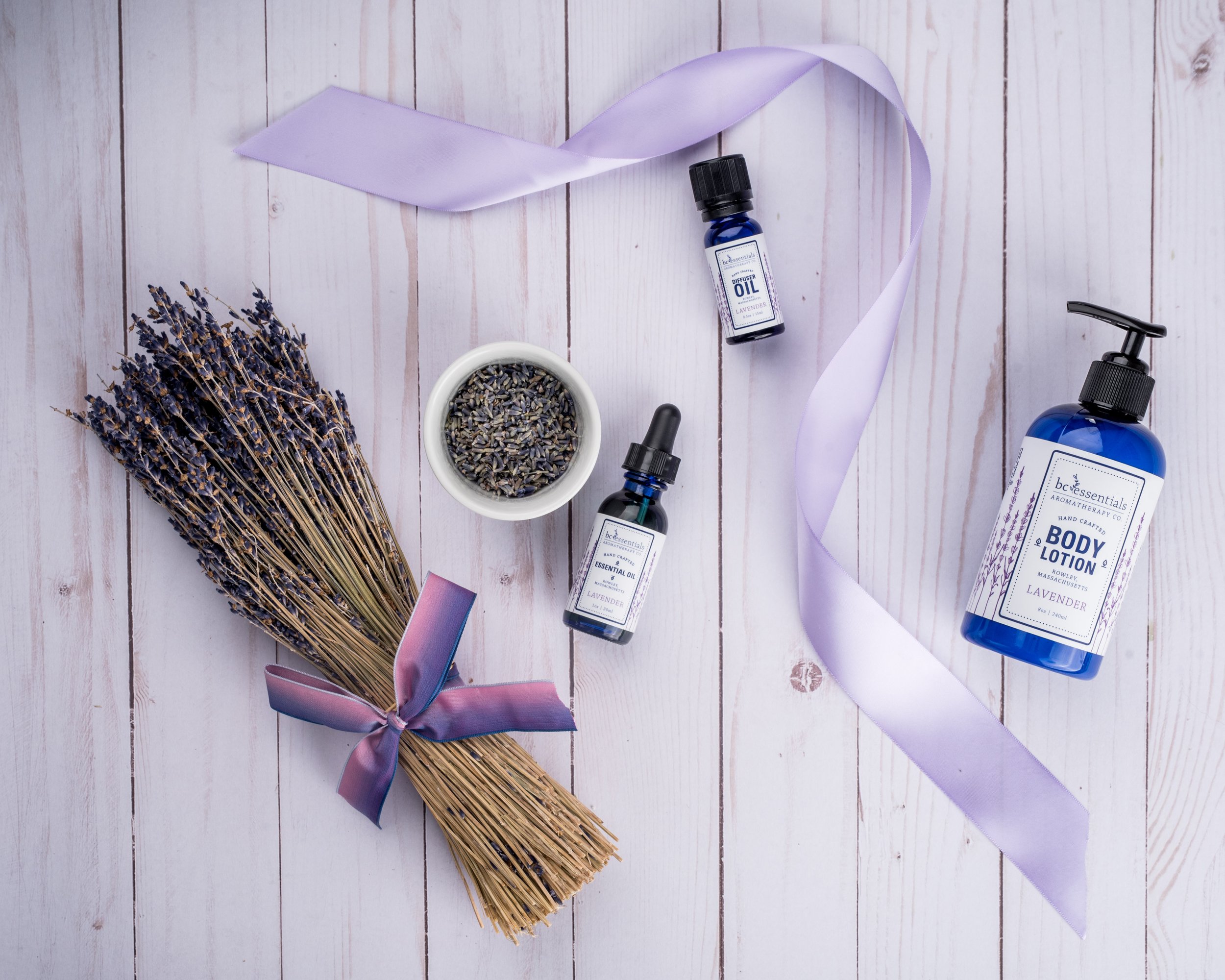
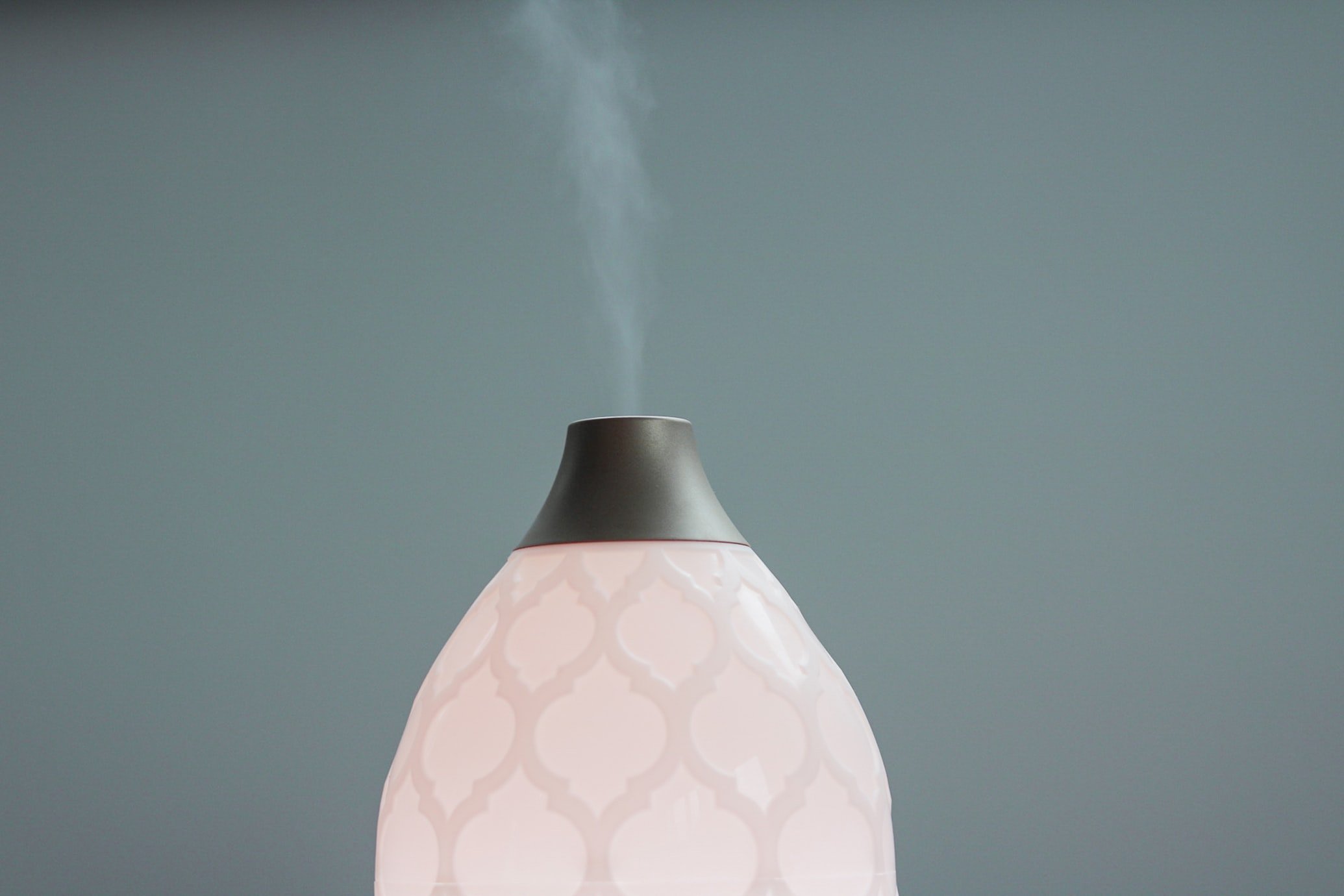
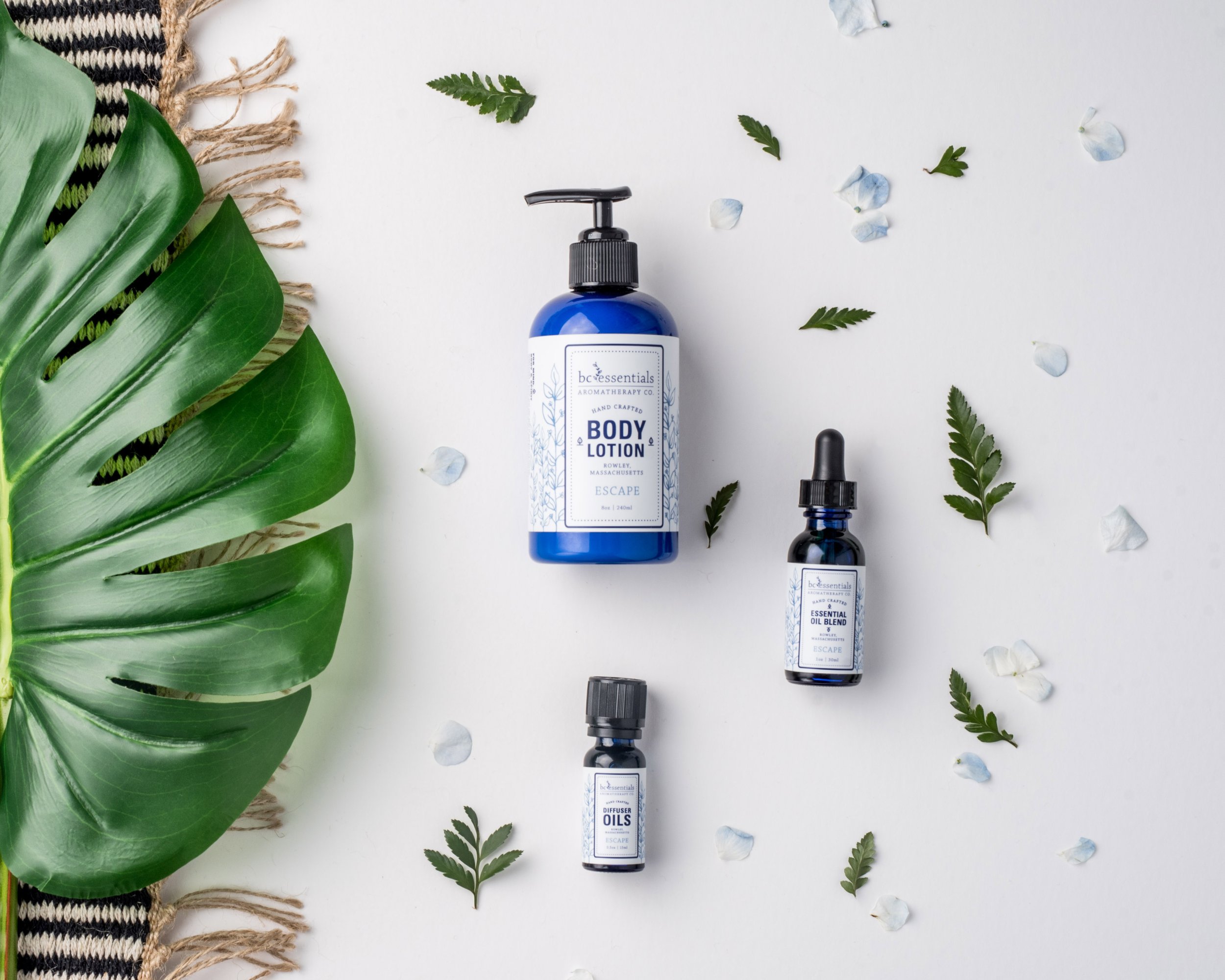
Oil Descriptions
Bergamot (Citrus bergamia) Uplifting, Fever Acne, Stress, Depression, Tension Wounds, Coughs, Stress; Antiseptic, Antibiotic, and Antidepressant Bergamot Essential Oil can be used to treat skin ailments such as psoriasis and eczema and it is considered to relieve stress and anxiety.
Birch (Betula lenta) Birch Sweet is credited with being an analgesic, anti-inflammatory, anti-pryetic, anti-rheumatic, antiseptic, astringent, depurative, diuretic, and tonic. It is an effective addition to massage oil blends for sore muscles, sprains and painful joints because of its anti-inflammatory and antispasmodic properties.
Black Pepper (Piper nigrum) Used to anti-toxify, Colds and Flu, Aches, Pains and Arthritis
Carrot (Daucus carota) Eczema, Psoriasis, Premature Aging, Reduces Scarring
Cedarwood (Cedrus atlantica) Cedarwood Virginian Oil is reputed to calm nervous tension and states of anxiety. It is an expectorant and useful in deterring moths and other insects, and will act as a mild astringent. It is excellent for treating cellulite. It is a very powerful antiseptic, fungicidal and anti-seborrhea (helps with dandruff, hair loss and oily hair).
Chamomile Roman (Athemis nobilis) Roman chamomile is generally used to treat psychological problems, beneficial for people who are short tempered, self involved, overly sensitive or rarely satisfied. It is a traditional remedy for children and is recommended when they are feeling impatient or tense. It is useful as a mild sedative for children. While Roman chamomile's anti-inflammatory and anti-spasmodic effects are to a lesser degree than German chamomile's, it also has anti-inflammatory properties. It is suitable for inhalation. Roman chamomile is a useful oil for women with irregular periods and PMS, ideally used in a bath or massage oil. Both have analgesic, antidepressant, antirheumatic and sedative properties, among many other properties.
Cinnamon (Cinnamomum zeylanicum) Used as an insecticide, emmenagogue, antispasmodic, antibacterial, aphrodisiac and antifungal particularly against Candida and Aspergillis. Indicated for tooth care, blends for vaginitis, impotence in men, respiratory blends for the lungs. Eases colds and breathing difficulties. As an inhalation, it is excellent for exhaustion, feelings of depression and weakness. It is a very effective antiseptic, digestive and anti-rheumatic and is regarded as one of the strongest antiseptic oils. Useful for preventing infectious and contagious diseases.
Citronella (Cymbopogon nardus) Insecticide, Deodorant; Antiseptic
Clary Sage (Salvia sclarea) Depression, Nerves, Sore Throat, Aches and Pains; Antiseptic and Sedative
Cypress (Cupressus sempervirens) Menopause, Rheumatism, Coughs and Colds, Nervous Tension, Varicose Veins and Hemorrhoids; Antiseptic
Dill Weed (Anethum graveolens) Gastric Upsets, Headaches, Nervousness
Eucalyptus (Eucalyptus globules) Sore Throats, Coughs, Bronchitis, Sinusitis, Skin Infections, Ulcers, Sores, Rheumatism, Aches and Pains; Antiseptic and Anti-Inflammatory
Eucalyptus Lemon (Eucalyptus citriodora) Dandruff, Scabs, Sores, Fungal Infections, Sore Throat, Asthma, Fever; Antiseptic, Antibiotic, Antiviral and Antifungal
Evening Primrose Multiple Sclerosis, Menopause, Heart Disease, Eczema, Psoriasis and Premature Aging
Fennel (Foeniculum vulgare) Diuretic, Digestion, Menopause, Cellulite, Obesity
Frankincense (Buswellia thurifera) Sores and Wounds, Fever, Coughs, Colds, Bronchitis, Upper Respiratory Infections, nervous conditions and tension, Meditation and Relaxation, Skin Rejuvination
Geranium (Pelargonium graveolens) Calms anxiety, lifts the spirit, assists with depression. Useful for all conditions of the woman's reproductive system as an inhalant and massage application, beneficial for PMS. May assist with menopausal problems. Assists with breast inflammation. Helps clear the body of toxins which may be helpful with addictions. Stimulates the lymphatic system which keeps infection at bay. Eases neuralgia. Indicated for all problems of the nervous system such as anxiety and nervous fatigue. The oil is a diuretic and a lymphatic stimulant which can help relieve congestion, fluid retention and swollen ankles. Useful for all skin conditions as it balances sebum. Good for oily skin. It's an excellent remedy for burns, wounds and ulcers.
Ginger (Zingiber officinale) Rheumatism, Muscular Aches and Pains, Sprains, Broken Bones, Colds, Nausea, Alcoholism and Digestion; Antiseptic
Grapefruit (Citrus paradise) Obesity, Cellulite, Migraines, and Depression
Hyssop (Hyssopus officinalis) Bruises, Rheumatism, Arthritis, Cuts, Hypertension, Circulatory Problems, and Nervous Tension; Antibiotic, Antiseptic
Juniper (Juniperus communis) Cellulite, Obesity, Rheumatism, Acne, Coughs, Ulcers, Urinary Infections, Respiratory, Diuretic; Antiseptic
Lavender (Lavendula angustifolium, officinalis) Burns, Inflammation, Cuts, Wounds, Eczema, Dermatitis, Headaches, Insomnia, Nausea, Nervous Tension, Infections, Acne, Asthma, Rheumatism and Arthritis; Antibiotic, Antiseptic, Antiviral, Antifungal
Lemon (Citrus limonum) Digestive Problems, Sore Throat, Fever, Anxiety; Antibiotic, Antiseptic
Lemongrass (Cymbopogon citratus) Infections, Headaches, Sore Throats, Respiratory Problems, Fevers and Insect Repellent; Antiseptic
Marjoram (Origanum marjorana) Sprains, Bruises, Colds, Rheumatism, Menstruation, Anxiety, Bronchitis, Insomnia, and Muscular Problems; Antiseptic
Neroli (Citrus bigaradia, aurantium) Depression, Anxiety, Hysteria, Diarrhea, Nervous Tension, Menopausal Problems, Dermatitis
Nutmeg (Myristica fragrans) Nausea, Vomiting, Muscular Aches and Pains, Rheumatism, Arthritis, Nervousness, Insomnia; Heart Stimulant, Antibiotic and Antiseptic
Orange (Citrus aurantium) Depression, Anxiety, Constipation, Nervous Conditions, Muscular Spasm; as a Tonic, Sedative and Antiseptic
Peppermint (Mentha piperata) Inflammation, Nausea, Indigestion, Fevers, Flatulence, Headaches, Migraines, Liver Problems, Arthritis; as a Stimulant and Antiseptic
Rose Otto (Rosa damascene) The most precious of all oils, and most Antiseptic, powerful Antidepressant, best for Feminine Reproductive System, Stress and Tension
Rosemary (Rosmarinus officinalis) Gout, Headaches, Fatigue, Rheumatism, Skin, Infections, Muscular Aches and Pains, Sprains, Dandruff, Alopecia, Obesity, Spinal Injuries; Nerve Stimulant, Heart Tonic, and Liver Decongestant, Analgesic
Sage (Salvia officinalis) Sores, Bacterial Infections, Bronchitis, Catarrh, Rheumatism, Arthritis, Sprains, Fibrosis; as an Astringent, Antiseptic and Antifungal
Sandalwood (Santalum album) Acne, Catarrh, Cystitis, Menstrual Problems, Depression, Skin Infections, Fungal and Bacterial Infections; as a Sedative, Antiseptic, Antiviral and Antifungal
Tagetes (Tagetes patula) Fungal Infections, Skin Infections, Cuts, Sprains, Strains, Wounds, Circulatory Problems; as an Antiseptic
Tea Tree (Melaluca alternifolia) Fungal Infections, Viral and Bacterial Infections, Colds, Influenza, Cold Sores, Warts, Varrucas, Inflammation, Acne, Burns, Candida, Shock, Hysteria; Antibiotic, Antiseptic, Antiviral, Antifungal
Thyme (Thymus vulgaris) Bacterial Infections, Urinary Infections, Rheumatism, Viral Infections, Lethargy, Sores, Wounds; as a Stimulant and Tonic, and to Raise Immunity, Antibiotic, Antiseptic, Antiviral, Antifungal
Valerian (Valeriana officinalis) Sedative, Calming, Nervous Conditions, Trembling, Neuralgia, Insomnia, Palpitations; as a Sedative and Tranquilizer
Yarrow (Achillea millefolium) Inflammations, Cramps, Constipation, Circulation, Rheumatoid Arthritis, Menstrual Problems; as an Astringent
Ylang Ylang (Cananga odorata) Palpitations, Anxiety, Depression, High Blood Pressure; as a Sedative and General Tonic
Oregano (Origanum vulgare) Numerous university studies (Georgetown, Cornell, Tennessee, etc.) and independent research have shown Oregano Oil to be a potent antimicrobial. The ever growing body of evidence is showing Oregano Oil to be useful as an antiviral, antibacterial, and antifungal agent rivaling even pharmaceutical antibiotics such as streptomycin, penicillin, vacnomycin, nystatin, and amphotericin in it's ability to eliminate microbes. Remarkably it accomplishes this without promoting the development of drug resistant strains and other problems often attributed to the use of standard antibiotics. In addition to this already impressive list of abilities Oregano Oil is also a powerful parasitic expellant, is valuable as a food preservative, and has been used to decontaminate foods from potentially harmful pathogen's. Carvacrol has been identified as the chief constituent behind Oregano Oil's extraordinary properties and is thought to work synergistically with the other components found in Wild Mediterranean Oregano Oil. These findings have been published in various scientific journals and presented at prestigious scientific functions.
